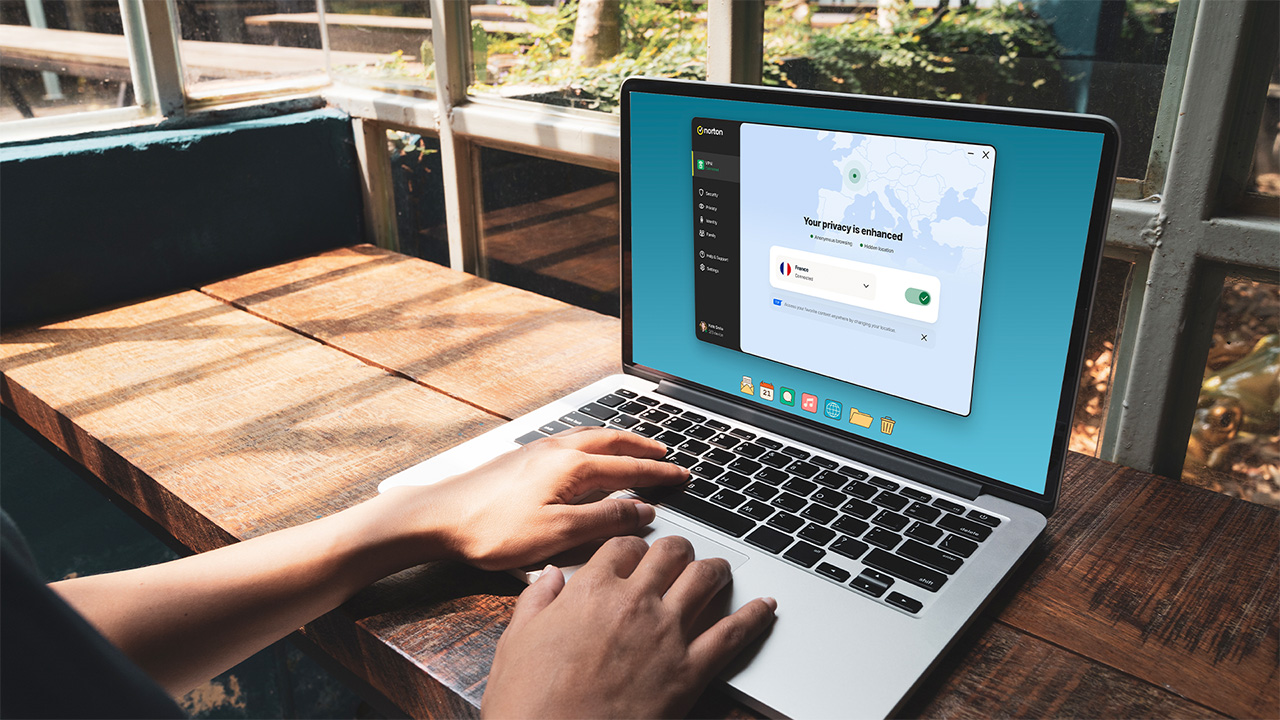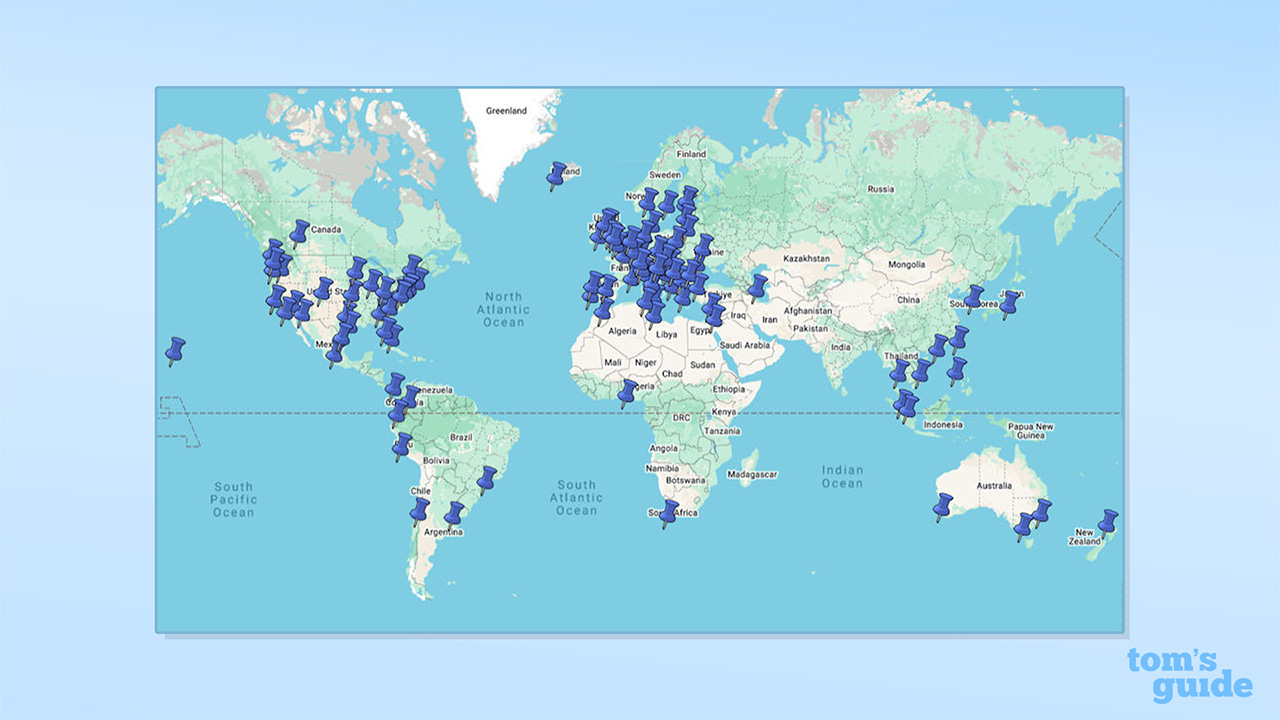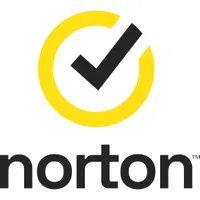Norton VPN servers — all you need to know about the provider's network
Learn more about Norton VPN's vast network of servers

Any VPN provider is only as good as its servers — and that applies to security, privacy and locations. Norton VPN offers a competitive number with more than 100 server locations globally, spanning more than 65 countries. That should mean plenty of options when it comes to connection points, which can translate to the best possible speeds while still giving the freedom to move about the planet by virtual location.
So, from geo-restrictions to content access, there should be a Norton VPN server available to suit most needs. Even if it's staying within the U.S. that's required, this VPN is particularly well suited thanks to impressive coverage across North America. Plus, with your location hidden and content encrypted, advanced Norton-specific features like Double VPN and IP Rotation make for even deeper levels of anonymity online.
Sign up to Norton VPN with Tom's Guide's exclusive offer
Our lucky readers in North America and Australia can take advantage of discounts on Norton VPN's feature-packed Plus and Ultimate plans thanks to this exclusive pricing. All subscriptions carry a generous 60-day money-back guarantee, meaning you can give Norton VPN a try risk free!
What is a VPN server?
Without wishing to state the obvious, a VPN server is a remote server which is operated by a VPN provider.
Connecting to it allows the user to mask their IP address so that they appear to be at that server location. It also means all traffic going in and out is encrypted so that nobody — even if they somehow gain access — would be able to make any sense of the data.
In short, a VPN server gives you a virtual identity, in order to keep you anonymous and secure while online.
How many servers does Norton VPN have?
Norton VPN's server locations span the world with 100 servers in over 65 countries including traditionally more tricky locations like Turkey, U.A.E. and Russia. The reach is certainly broad and, to accomplish the best possible speeds, it covers the U.S., U.K., Europe, Asia-Pacific and Latin America as well.
Partially based in the U.S. there are a good number of servers within North America alone. Coverage spans 18 states with servers available in 25 cities including New York, Los Angeles and Chicago, as well as Atlanta, Denver, Houston and Miami to name just a few larger locations. Often faster connections can be maintained by connecting to more local servers, making this a powerful option for anyone in the U.S. that simply wants to stay anonymous without actually needing to appear outside of the States.
At the time of writing, Norton VPN has servers in the following countries:
Click to see all countries▼
- U.S. (25 locations)
- United Kingdom (5 locations)
- Canada (4 locations)
- Italy (4 locations)
- Germany (3 locations)
- France (2 locations)
- Portugal (2 locations)
- Albania
- Austria
- Azerbaijan
- Belgium
- Bosnia and Herzegovina
- Bulgaria
- Chile
- Colombia
- Costa Rica
- Croatia
- Cyprus
- Czech Republic
- Denmark
- Ecuador
- Estonia
- Finland
- Greece
- Hong Kong
- Hungary
- Iceland
- Indonesia
- Ireland
- Israel
- Japan
- Latvia
- Libya
- Lithuania
- Luxembourg
- Malaysia
- Mexico
- Moldova
- Morocco
- Netherlands
- Nigeria
- Norway
- Panama
- Peru
- Philippines
- Poland
- Romania
- Serbia
- Singapore
- Slovakia
- Slovenia
- South Africa
- South Korea
- Spain
- Sweden
- Switzerland
- Taiwan
- Thailand
- Turkey
- Ukraine
- Vietnam

Physical servers vs Virtual servers
Physical servers, as the name suggests, are hardware located in a specific country and data center. Connect to one of these and you will appear, by way of IP address, to be in that same location. This is the kind of server largely used by Norton VPN as they provide the most reliable and transparent service.
However, in locations where setup of a physical server might be impractical — or less secure — a virtual server can be used to offer the appearance of being located in that place. In these cases, the physical server can be in one country, while the virtual server appears to be in another. The idea here being to offer the best of both worlds without any lack of reliance or security.
Norton VPN Advanced Servers
While Norton VPN offers a great selection of servers, it Advanced Servers help it to stand out by offering some unique and powerful security features.
The first is Double VPN, which moves your traffic through two separate servers to further layer up your privacy. This makes it even tougher for anyone to trace your online activity.
The second is IP Rotation which, as the name suggests, cycles your IP address regularly to keep it changing. This means that every 30 seconds you appear to be at a different IP address, helping not only to prevent tracking but also to help actively avoid targeted advertising.
And then there are its specialized P2P-Optimized, which automatically chooses the fastest VPN location to effect the smoothest possible secure connections data transfers.
Just note that these Advanced Servers are only available in specific server locations, so you may not be able to make full use of them if you're also looking to spoof your IP address to a certain territory.

How to choose your Norton VPN server
Needs can vary when using a VPN, so first decide what it is you are seeking — be that speed, security, geo-location and so on.
If it's speed that is paramount, then connecting to the most local server may be the optimal option as this can reduce latency making it ideal for things like gaming, streaming or large downloads. Handily, Norton VPN has a 'Fastest location' option in the dashboard to automatically get you the speediest connection possible.
If accessing certain content by location is your need (maybe you're trying to access U.S. Netflix or stream a live sporting event in another country) then connecting to a large city in that country could be the fastest and most stable choice.
Finally, for maximum security, consider using the abovementioned Advanced Server features like Double VPN and IP Rotation to minimize monitoring opportunities. A balance of all these features can also be worth considering when you decide on your ideal server choice.
We test and review VPN services in the context of legal recreational uses. For example: 1. Accessing a service from another country (subject to the terms and conditions of that service). 2. Protecting your online security and strengthening your online privacy when abroad. We do not support or condone the illegal or malicious use of VPN services. Consuming pirated content that is paid-for is neither endorsed nor approved by Future Publishing.
Get instant access to breaking news, the hottest reviews, great deals and helpful tips.
Luke is a freelance writer and editor with over two decades of experience covering tech, science and health. Among many others he writes across Future titles covering health tech, software and apps, VPNs, TV, audio, smart home, antivirus, broadband, smartphones, cars and plenty more. He also likes to climb mountains, swim outside and contort his body into silly positions while breathing as calmly as possible.
You must confirm your public display name before commenting
Please logout and then login again, you will then be prompted to enter your display name.
 Club Benefits
Club Benefits







